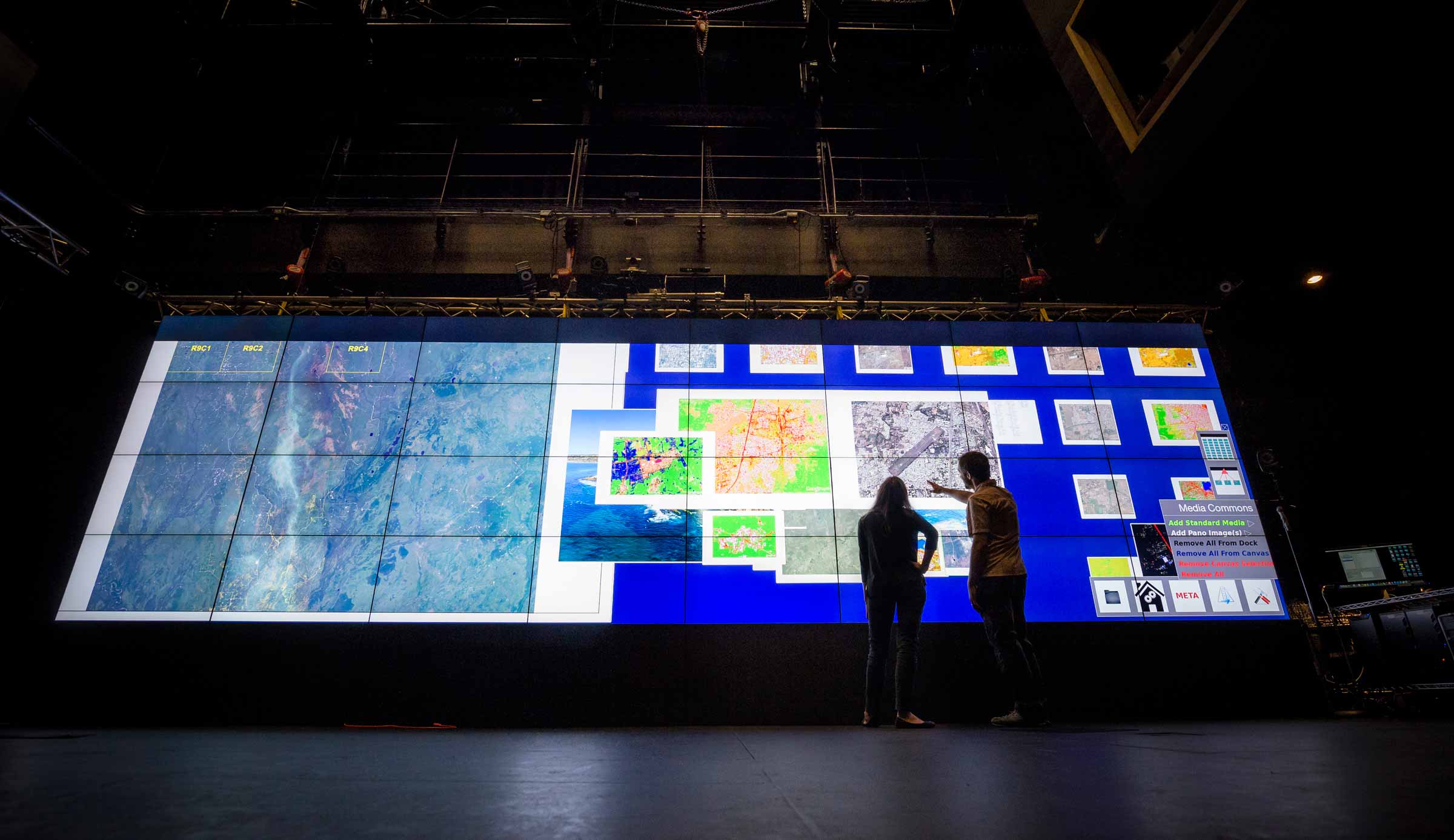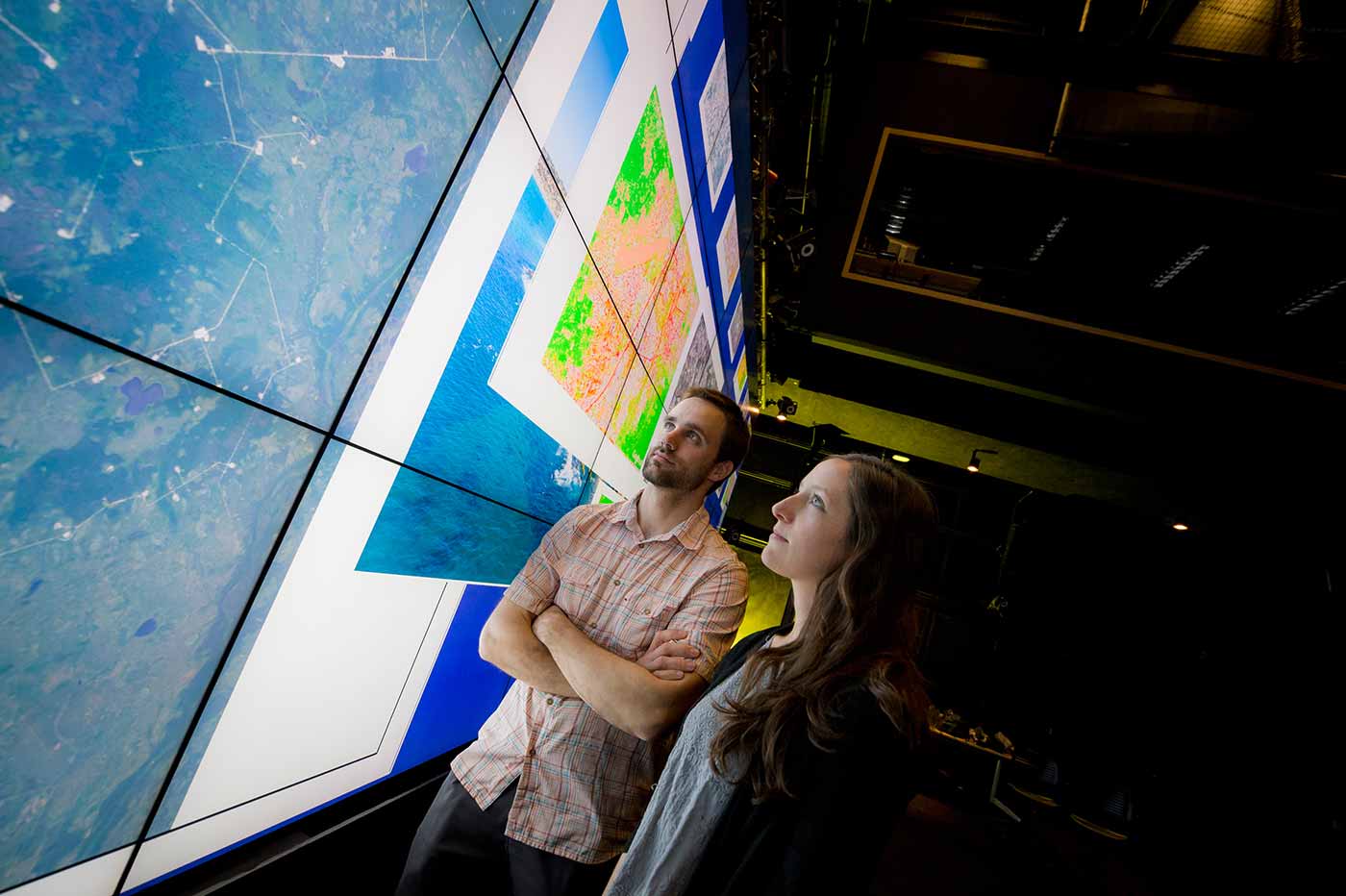
By:
- Paul K. Mueller
Published Date
By:
- Paul K. Mueller
Share This:
Frontiers of Innovation Scholars Program Launches 200 Student-Research Projects

Photos by Erik Jepsen/UC San Diego Publications
One hundred undergraduates, 80 Ph.D. students and 20 postdoctoral scholars all received a big boost to their careers – and UC San Diego made a big investment in the future of interdisciplinary research – through recent competitive awards by the Frontiers of Innovation Scholars Program.
Postdoctoral scholars and Ph.D. students were awarded up to $25,000 each; undergraduate students were awarded $3,000 each, with the funding going to projects led by principal investigators.
“The Frontiers of Innovation Scholars Program builds the interdisciplinary expertise we will need to address national and global challenges,” said Chancellor Pradeep K. Khosla. “Like the ongoing Frontiers of Innovation seed funding for new research centers on campus, this program is an investment in the university’s leadership role in interdisciplinary research.”
UC San Diego’s Strategic Plan identifies four research themes:
- Understanding and Protecting the Planet
- Enriching Human Life and Society
- Exploring the Basis of Human Knowledge, Learning and Creativity
- Understanding Cultures and Addressing Disparities in Society.
“The student-research projects all support those research priorities and continue the university’s investment in access and affordability for all students interested in an exceptional educational experience,” said Vice Chancellor for Research Sandra A. Brown, whose Office of Research Affairs oversees parts of the Frontiers of Innovation programs. “These investments will forge new intellectual enterprises, which increasingly rely on the ability to work across diverse disciplines, either individually or as members of multidisciplinary teams.”
While undergraduates will have new opportunities to work on multidisciplinary projects in a single laboratory or program, Ph.D. graduate students and postdoctoral scholars will have mentors in at least two different divisions (that is, Physical Sciences and Biological Sciences; Health Sciences and Arts and Humanities; Marine Sciences and Engineering).
For example, research scientists affiliated with the Qualcomm Institute will channel their Frontiers of Innovation funding to Ph.D. students in philosophy, with grad student Damon Crockett working with QI’s Lev Manovich; and political science, with student Michael Davidson working with research scientist Albert Yu-Min Lin.

From left, Michael Davidson and Sara Kerosky
Similarly, Ph.D. student Quentin Gautier will work with Ryan Kastner, a professor of computer science and engineering, on 3-D modeling for underwater archaeology. Master’s candidate Narendan Thangarajan will work with CSE research scientist Nadir Weibel on a project to detect the social networks of San Diegans considered at risk of contracting HIV – research that will contribute results to studies under way at the School of Medicine’s Antiviral Research Center.
“Through this interdisciplinary project, I am learning how to participate in research where human subjects are involved,” says Thangarajan, “as well as medical practices related to HIV. The Frontiers of Innovation funding will allow me to spend more time on research, which in turn will help our research project to advance and reach our envisioned goal.”
Michael Davidson works with Sara Kerosky, another Ph.D. candidate in political science, on a project involving remote-sensing technology. “Funding from the Frontiers of Innovation Scholars Program is a tremendous boost to our efforts to answer important political-science questions using remote sensing,” he says. “We are working to detect and measure illegal coastal mining in the Philippines with high-resolution satellite imagery. Funding from FISP will pay for computing power and some of the countless hours we’ll spend on the project.”
This research is directed toward both understanding and protecting the planet and understanding cultures and addressing disparities. Gautier’s work with Kastner focuses on understanding and protecting the planet, and Thangarajan’s project will contribute to the strategic research theme of enriching human life and society.
Such multidisciplinary projects in every field of study across campus, Brown said, should help keep UC San Diego among the nation’s leaders in innovative, problem-solving research and scholarship.
“The Frontiers of Innovation fellowships provide opportunities for the students and scholars to develop their ability to communicate and collaborate with those in very different disciplines,” said Brown. “Priority is given to projects that are aligned with the UC San Diego’s strategic research themes and represent a new collaborative focus, employ novel and creative approaches, and foster commitments to diversity and access.”
Ph.D. graduate students and postdoctoral scholars who receive funding in FY2015 may re-apply for funding in FY2016, Brown notes. Preference will be given to new applicants, but a one-year renewal will be possible. Undergraduate funding is for one year only. Purposes for which funds may be spent include such things as purchase of equipment, supplies, salary support, conference travel, and use of facilities.
Share This:
You May Also Like
Stay in the Know
Keep up with all the latest from UC San Diego. Subscribe to the newsletter today.


